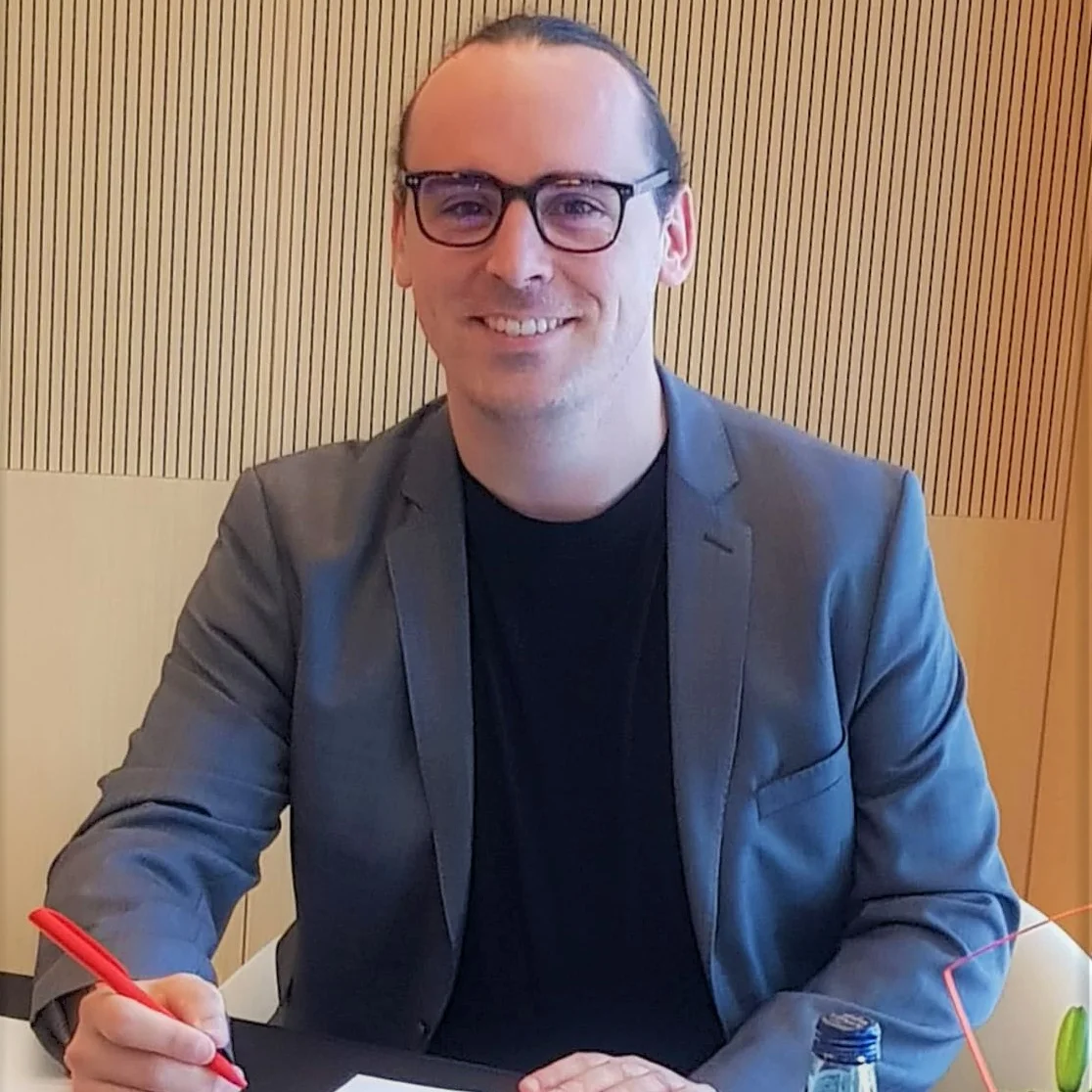AIT India 2025/26: CeraSkin
Meet Romain Trihan, one of the ten participants in the 2025/26 edition of the Academia-Industry Training India programme.
Interview with Romain Trihan

“CeraSkin intends to provide MedTech companies with ceramic particles that puncture the external layer of the skin, without pain, to help improve skin treatments efficiency. With our patented process, developed thanks to research work conducted at Empa, we can produce ceramic particles in a suitable way for big production.”
What problem does your startup solve, and why is it important to you personally?
CeraSkin intends to provide MedTech companies with ceramic particles that puncture the external layer of the skin, without pain, to help improve skin treatments efficiency. This kind of dermatological application with ceramics already exists, with competitors commercializing devices made with a laser-cutting process. Unfortunately, the laser-cutting process is time-consuming, with the ceramic particles being cut one by one. This process is long, energy-demanding and the produced particles are expensive.
Contrary to that, with our patented process, developed thanks to research work conducted at Empa, we can produce ceramic particles in a suitable way for big production, and at a lower price. This makes the products and skin treatments affordable for a broader population. Personally, I’ve always been interested in the biomedical field from my young age, and I really want to help reduce the pain and social discomfort that some people experience, so that they feel better in their body, in their skin.
What inspired you to become a sciencepreneur, and what has been your biggest “aha!” moment so far?
Since I was a child, I always knew that science is key to achieving innovation and breakthrough in our society. Nevertheless, without entrepreneurship, science stays “theoretical”. Along with entrepreneurship, it affords to bring this in a concrete way in our daily lives. I’ve always been working with industrial partners, and I wanted to be an entrepreneur since the engineering college.
Later during my PhD thesis, I had the task to develop optical probes to be used for cancer diagnosis and therapy. It was tough, nevertheless I learned resilience, while achieving really good results. In particular, I could improve the reliability of the production process and its reproducibility, two key aspects when considering industrial production. I am super happy and proud to have accomplished that. As for most scientists, we often got few small “aha!” moments. Nevertheless, I think my greatest moment was when I finished the PhD thesis manuscript, looking back at all the accomplished work after 4 years. It is difficult to describe how good one feels after that!
What unique perspective does your academic background bring to your startup?
All along my journey as a researcher, I often used to work with industrial partners. That kind of environment is favorable to develop a pragmatic and efficient approach to solving problems. As scientists, we often base our methodology on existing literature, which, in addition to critical thinking, affords to fill the blank spaces regarding innovations that are still left to discover. The possibility to think “out of the box” also improves creativity and boosts the chance to find something super interesting! Imagination as a source of inspiration.
Of course, during my studies, my major was ceramic sciences and processings. People usually think that ceramics refer only to porcelain and tablewares. It is actually a branch of materials that find a broad range of applications in different fields, for example with electronics, energy, aerospace, biomedical, building, environment, etc. Actually, with our process we could even produce ceramic micro components not only for biomedical applications!
What’s one surprising lesson you’ve learned since launching your startup?
Good scientists doubt about everything! This is also part of my personality. Lack of self-confidence is often seen as a weakness, nevertheless I prefer to say that it is about being careful, precise about every statement. Regarding the major lesson that I learned, it is that we should strongly believe in success to make it happen. It took me few years to go from “I'd like to do this” to “I'm currently doing it”.
The journey as entrepreneur demands a lot of time, involvement, and energy. Also, when hearing about other entrepreneurs’ feedback, some speak about the business and companies they were ruling, but which they had to end up. It is not about failures, it is about experience. Do or do not, there is no try!
If you could host a dinner with three innovators (past or present), who would they be and why?
Ok, I admit, I had to google that to look for famous innovators that would not be too “cliché”… If I would host a dinner, I would obviously choose innovators with whom I am sure not to get bored. Regarding personality, I totally connect with Nikola Tesla, known to be an amazing inventor, engineer and futurist. He had a crazy mind, very artistic ways to achieve his goals and a strong “thinker”, considering all aspects before putting a plan to action.
Another personality that I would like to discover is the Italian Leonardo Da Vinci. He is the true example that one can be an engineer/innovator, AND an artist. He was also a futuristic inventor, with some drawings depicting future technologies.
Finally, I was considering inviting Marie Curie. I still think this was quite unfair that she was the one doing the work, but that it was her husband that got all the credit for the innovative things she discovered! Nevertheless, if I would invite one woman, this would be my PhD supervisor. She guided me for 4 years with patience, goodwill, dedication, and a strong sense of ethics. She was and is still my mentor.